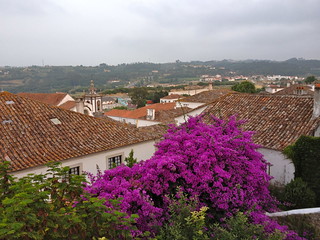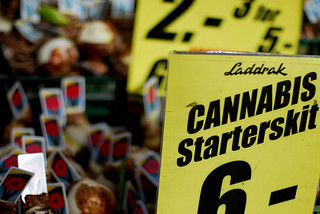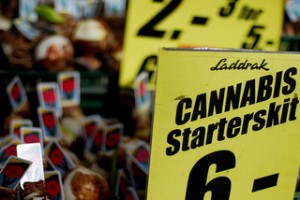 Somewhere out in the country side of western Portugal, I’m driving around dodging goats and tractors while reflecting on life’s challenges when you exist across borders. Instead of the usual world news issues and under reported news this is a more traditional stream-of-conciousness podcast that some people out there may be able to relate to when it comes to old age, economic problems, small towns, and ch-ch-changes. Join me on the back roads and highways of Portugal’s loveliest pear and wine regions.
Somewhere out in the country side of western Portugal, I’m driving around dodging goats and tractors while reflecting on life’s challenges when you exist across borders. Instead of the usual world news issues and under reported news this is a more traditional stream-of-conciousness podcast that some people out there may be able to relate to when it comes to old age, economic problems, small towns, and ch-ch-changes. Join me on the back roads and highways of Portugal’s loveliest pear and wine regions.
The Promise of Employment
 It is a formula that we decided decades ago makes sense and should therefore work. It is a recipe that for many people in the past decades, has worked to provide a decent life and what people often refer to as security as they look to the future. – You go to school, you do your training, and when you’re finished there will be a job for you somewhere, and it will be a job you want.
It is a formula that we decided decades ago makes sense and should therefore work. It is a recipe that for many people in the past decades, has worked to provide a decent life and what people often refer to as security as they look to the future. – You go to school, you do your training, and when you’re finished there will be a job for you somewhere, and it will be a job you want.
Nowadays this formula is less solid than it has ever been. There aren’t many jobs to go around, yet many are still doing the training and the degrees under the assumption that the old deal will still be honored. As they come out and find the world is not quite what they thought, there is anger, frustration, and sadness across the board. Then come the protests and the campaigns, some speeches from politicians and average citizens, a few policies to try and re-animate that old connection between job training and job. Underneath all the activities and discussions there is a basic principle that remains, in this world as we have built it, you should be able to get an education which also prepares you for a career that once you’re met some set requirements, you can pursue. After all, how else is it supposed to work?
The hardline voices in the wilderness will say — there are no guarantees in life. A statement that is easy to confirm.
But getting back to that old deal that we’re still trying to revive, here in Portugal one can observe the living breathing collapse and aftermath of that socio-educational correlation. People young and old with degrees in social work, primary and secondary education, and a long list of other studies, find themselves either in the never-ending spiral of unemployment and job training, or the very common – working retail in a shopping mall. You might have the skills and training to help people in need or teach, but nowadays where you’re needed is selling iPods at the nearest strip mall. Are these jobs terrible? No, not for everyone. But what happens when you’ve got a country full of social workers and educators selling jeans and flipping burgers? When people’s lives get placed on hold as they wait for that possible real job they trained and prepared for. When they decide not to have any children and to live at home forever to save something from their minuscule pay check?
The discussion is not new. It even finds its way into political discussions regularly these days. But the underlying principle should also be subject to scrutiny. Why believe in the formula anymore? There is not just one way to learn. There is not just one way to make a living. Hoping and working to repair a once functional system is perhaps a noble goal that bears the occasional fruit. But what about teaching each other to break out of the pattern. That if they continue to just wait for something to happen, instead of making something happen, they could be waiting for the rest of their unfulfilled lives.
Behind the Coffeeshop Counter

When it comes to drug policy and coffeeshops in the Netherlands, we rarely hear the voices of those who work behind the counter and see how things work (or don’t work). Nel has lived and worked in the coffeeshop world for over 5 years and in that time he has seen the daily routine of the cannabis industry and the politics that revolve around it. What he knows is not the political theater that so often gets reported on in the media, his story is the reality that somehow does not always trump the growing list of myths that surround cannabis in the Netherlands.
The Coincidences and the Big Picture
 I’m probably a very annoying person to deal with on a daily basis, especially when I’m doing my typical “big picture” speeches and appreciating the life I’ve carved out for myself knowing full well how many do not get to enjoy, travel, try… as I have. I’m not sure what turn of events, what influential person or piece of media that I ever heard/read/watched, that made me someone that continuously comes back to one conclusion: despite some slim odds and all the factors that could have played out differently, I have arrived (as have so many of us) at this point in my life doing things I love to do, having people in my life (near and far) that I’m honored to know, and in reasonably good shape as far as the essentials of life go. Although much of the world seems so busy and eager to move past these types of observations, just as quickly as someone might be about to click away from this text, I think the ability to see it – especially at difficult moments- is something that needs nurturing.
I’m probably a very annoying person to deal with on a daily basis, especially when I’m doing my typical “big picture” speeches and appreciating the life I’ve carved out for myself knowing full well how many do not get to enjoy, travel, try… as I have. I’m not sure what turn of events, what influential person or piece of media that I ever heard/read/watched, that made me someone that continuously comes back to one conclusion: despite some slim odds and all the factors that could have played out differently, I have arrived (as have so many of us) at this point in my life doing things I love to do, having people in my life (near and far) that I’m honored to know, and in reasonably good shape as far as the essentials of life go. Although much of the world seems so busy and eager to move past these types of observations, just as quickly as someone might be about to click away from this text, I think the ability to see it – especially at difficult moments- is something that needs nurturing.
Can everything change suddenly? – Of course. Are there worries? -I’m a citizen journalist in the year 2012; there are worries. Have there been set backs and tragedies? I think we’ve all had them, though again I feel fortunate having learned about and seen how bad things can be and are for so many in this world. Beyond all that – is it enough to just dwell on the big picture of fantastic coincidences that have led to a certain degree of satisfaction on a personal and work level? Probably not.
But still, as so many astute observers have stated, there is much beauty to be seen and experienced in this world. Sometimes it is right there in front of us, and we choose not to look or we lack the ability to see it, especially during moments of weakness. Think about the series of events that took place before you read this text today, and all the other factors that could have stopped you from reading it, but somehow didn’t come in to play this time. I believe there is something to be said for the good chain reactions of life. Maybe it is the power to recognize them and enjoy them, that helps us individually and collectively, find responses to the many challenges and problems of our world.
Myths of Cannabis Prohibition in the Netherlands
 Over the past years alot of half-assed information has been spread by a combination of poor journalism and rumors via social media, which states that foreigners can no longer buy cannabis in coffeeshops in Amsterdam. Though this is untrue, word about an experimental policy in the south of the Netherlands has travelled. Many, both outside and inside the country, believe its only a matter of time before prohibition becomes a national reality. But the truth is, that is still only one of many possible futures for the Netherlands. Beyond that, research and reality shows the experiment is a failure, yet politicians remain locked into their white-washing campaign to clean the image of the nation. My returning guest is Frederik Pollak, a researcher and policy expert who has been following the discussion for over a decade, and has alot to say about what is really going on in the Netherlands and around the world.
Over the past years alot of half-assed information has been spread by a combination of poor journalism and rumors via social media, which states that foreigners can no longer buy cannabis in coffeeshops in Amsterdam. Though this is untrue, word about an experimental policy in the south of the Netherlands has travelled. Many, both outside and inside the country, believe its only a matter of time before prohibition becomes a national reality. But the truth is, that is still only one of many possible futures for the Netherlands. Beyond that, research and reality shows the experiment is a failure, yet politicians remain locked into their white-washing campaign to clean the image of the nation. My returning guest is Frederik Pollak, a researcher and policy expert who has been following the discussion for over a decade, and has alot to say about what is really going on in the Netherlands and around the world.
No President is Sacred
 Last month there was a big to-do in South Africa over an art piece by Brett Murray, depicting president Jacob Zuma posing in a Lenin-style look to the future along with his penis being clearly visible. Protesters have called it everything from disrespectful to racist, culminating in one enraged person attacking the artwork, damaging it, and closing the exhibition (or is it back already? I haven’t heard the latest)
Last month there was a big to-do in South Africa over an art piece by Brett Murray, depicting president Jacob Zuma posing in a Lenin-style look to the future along with his penis being clearly visible. Protesters have called it everything from disrespectful to racist, culminating in one enraged person attacking the artwork, damaging it, and closing the exhibition (or is it back already? I haven’t heard the latest)
Zuma has long been a contreversial figure, especially when it comes to sex and sexuality. He has had 6 wives and from them a grand total of 20 children. More infamously, he was acquitted of rape in 2005. Throughout his political career in some way sex or sexuality has always been there, either in the background or the foreground. This would seem to be the grounds for which the artist chose to prominently include the president’s penis in the image.
Many disagree. They see these matters and personal and not subject to public criticism. They also feel the president of the nation deserves respect and not to be made a caricature of. But they don’t just disagree and write about it in the media and express their opinion in the many forums available to people today. They take it further and seek to have such images banned and follow that with all manner of accusation about the intentions of the artist. Its a familiar theme in a world that has become very much about not just expressing an opinion, but stopping others from expressing their perhaps less popular opinion. Everyone is very busy being offended, and they demand someone else get in trouble for their alleged suffering.
Im neither South African nor a real artist, but I think there’s a global message in the events taking place around this work. Therefore I’m making sure “The Spear” is available on this site… enjoy – or don’t.

